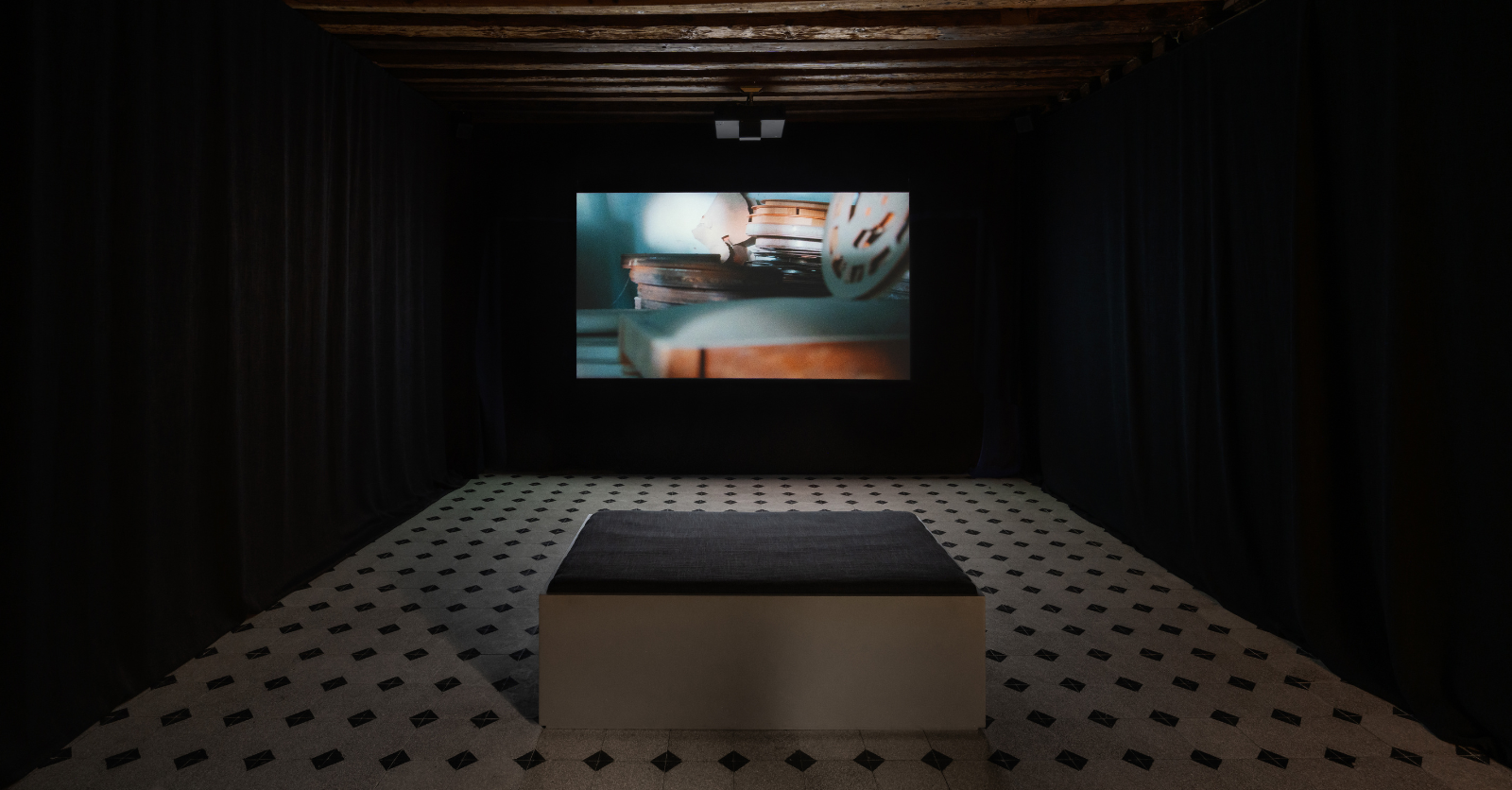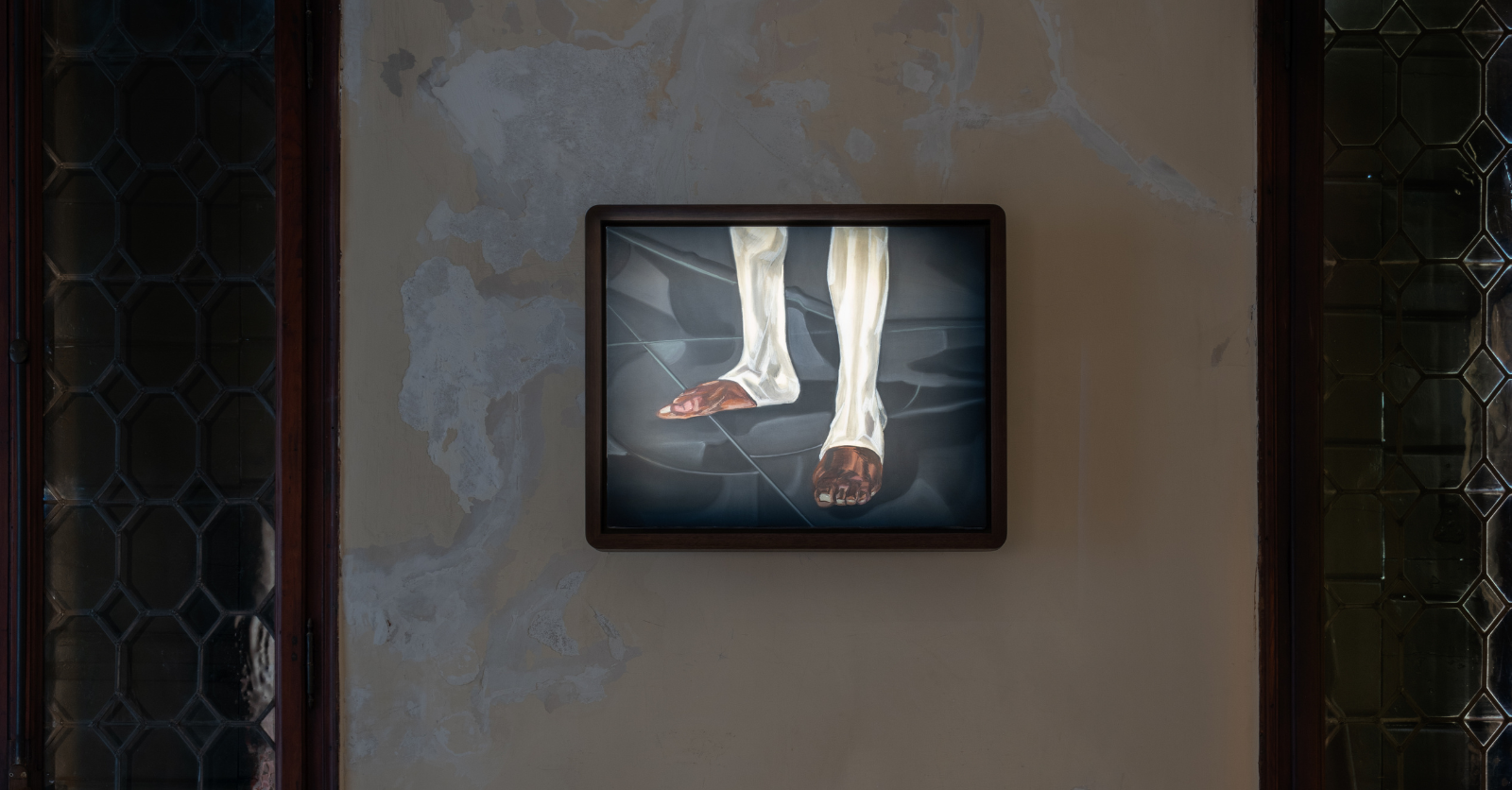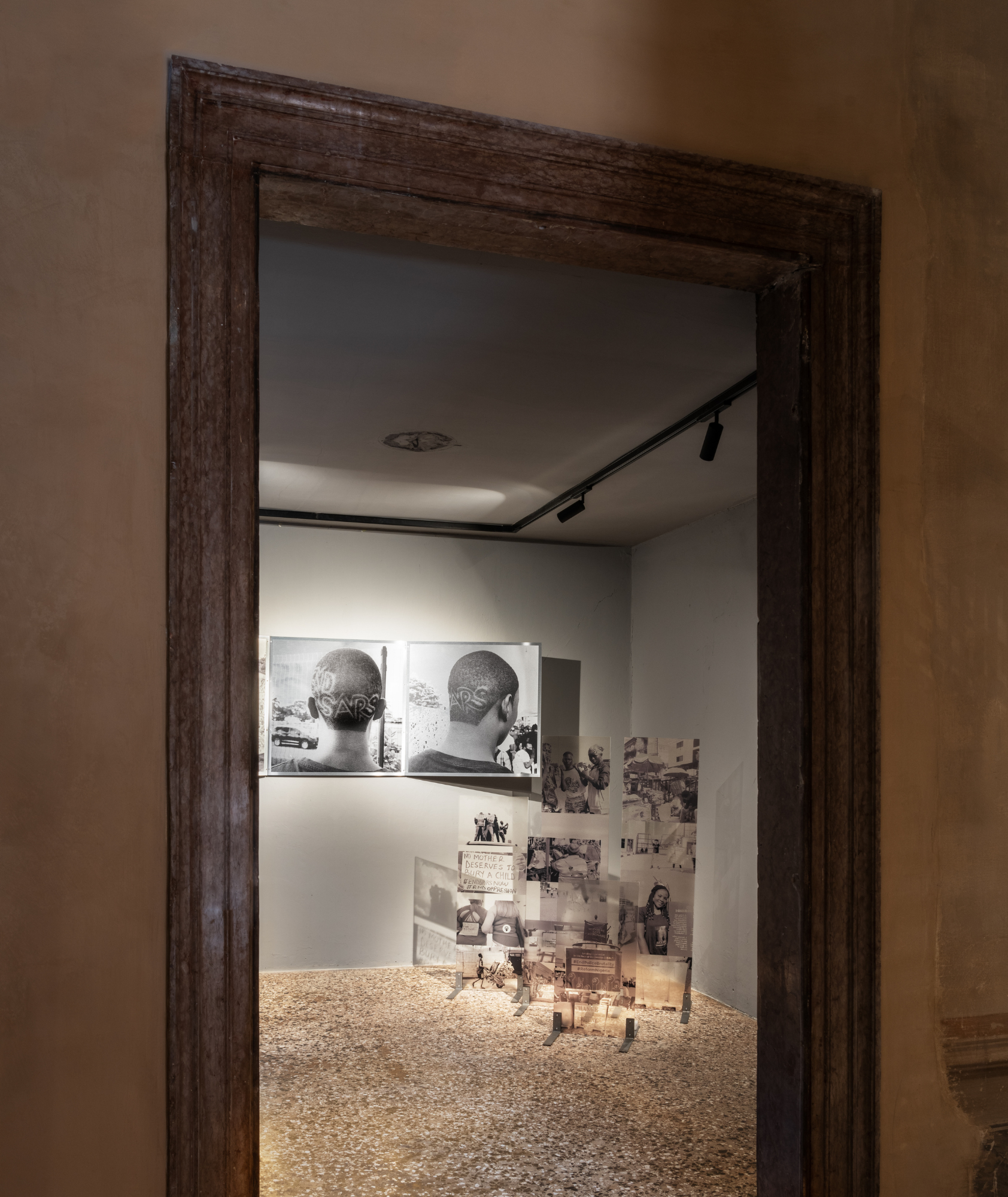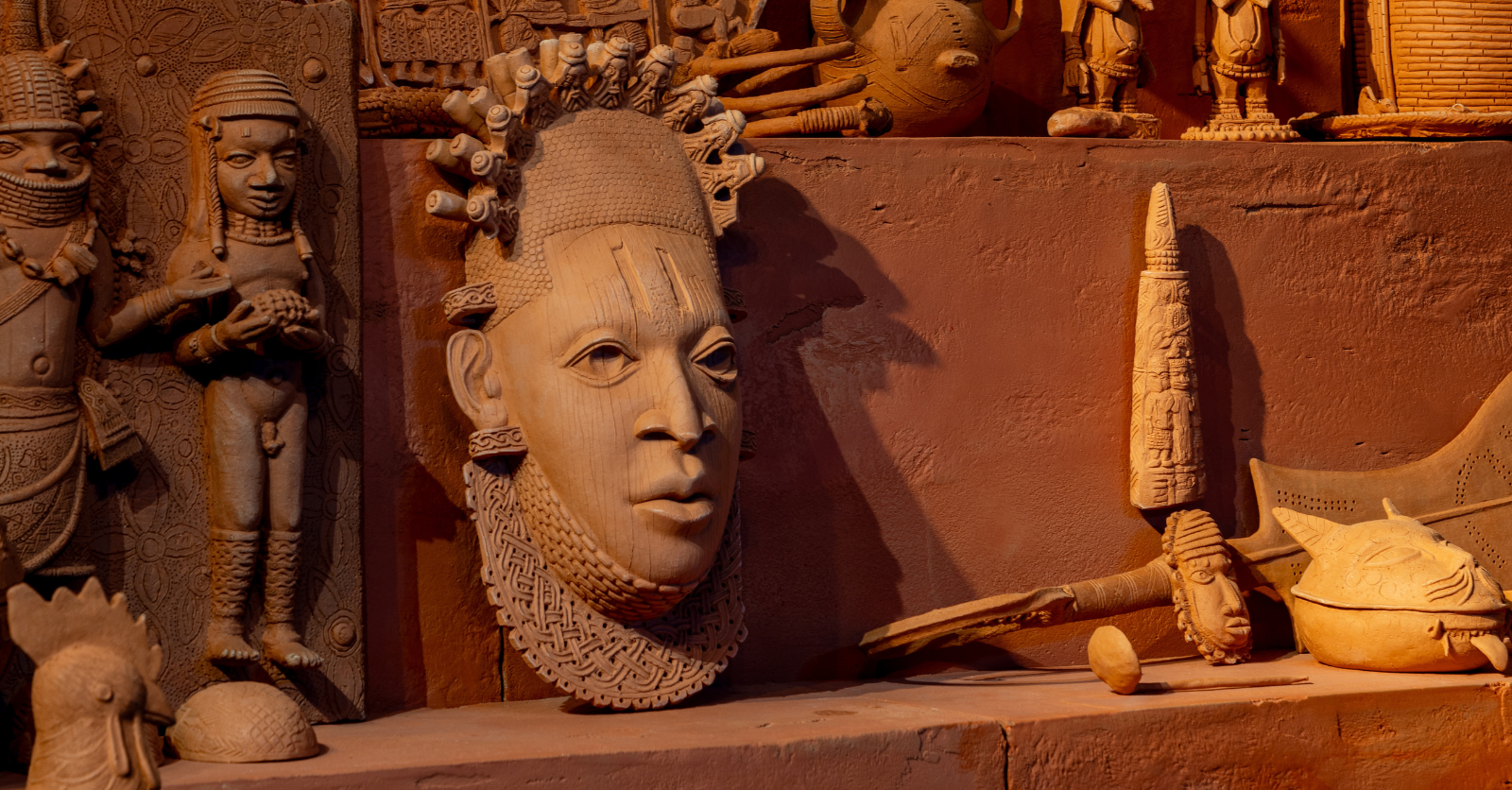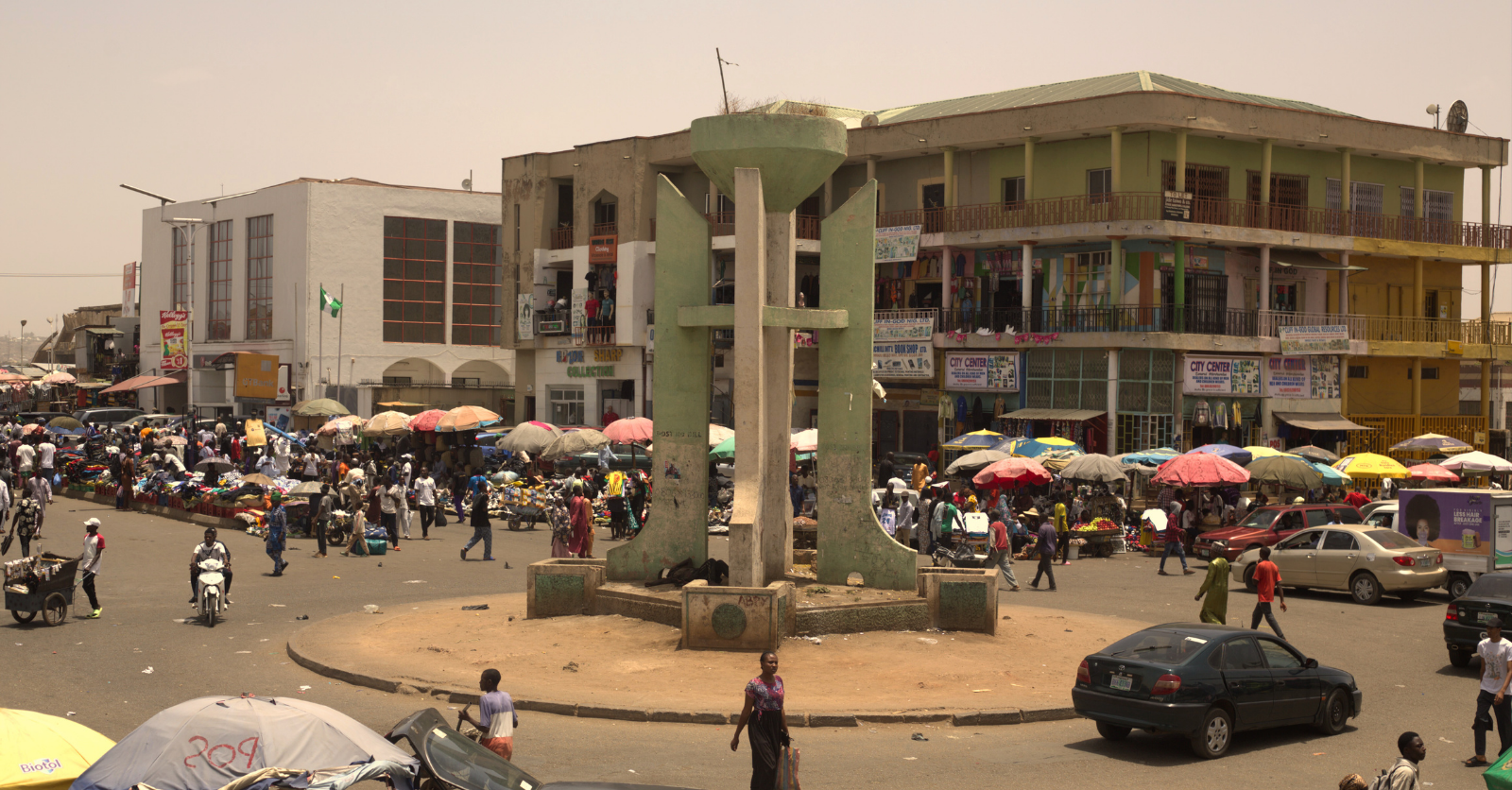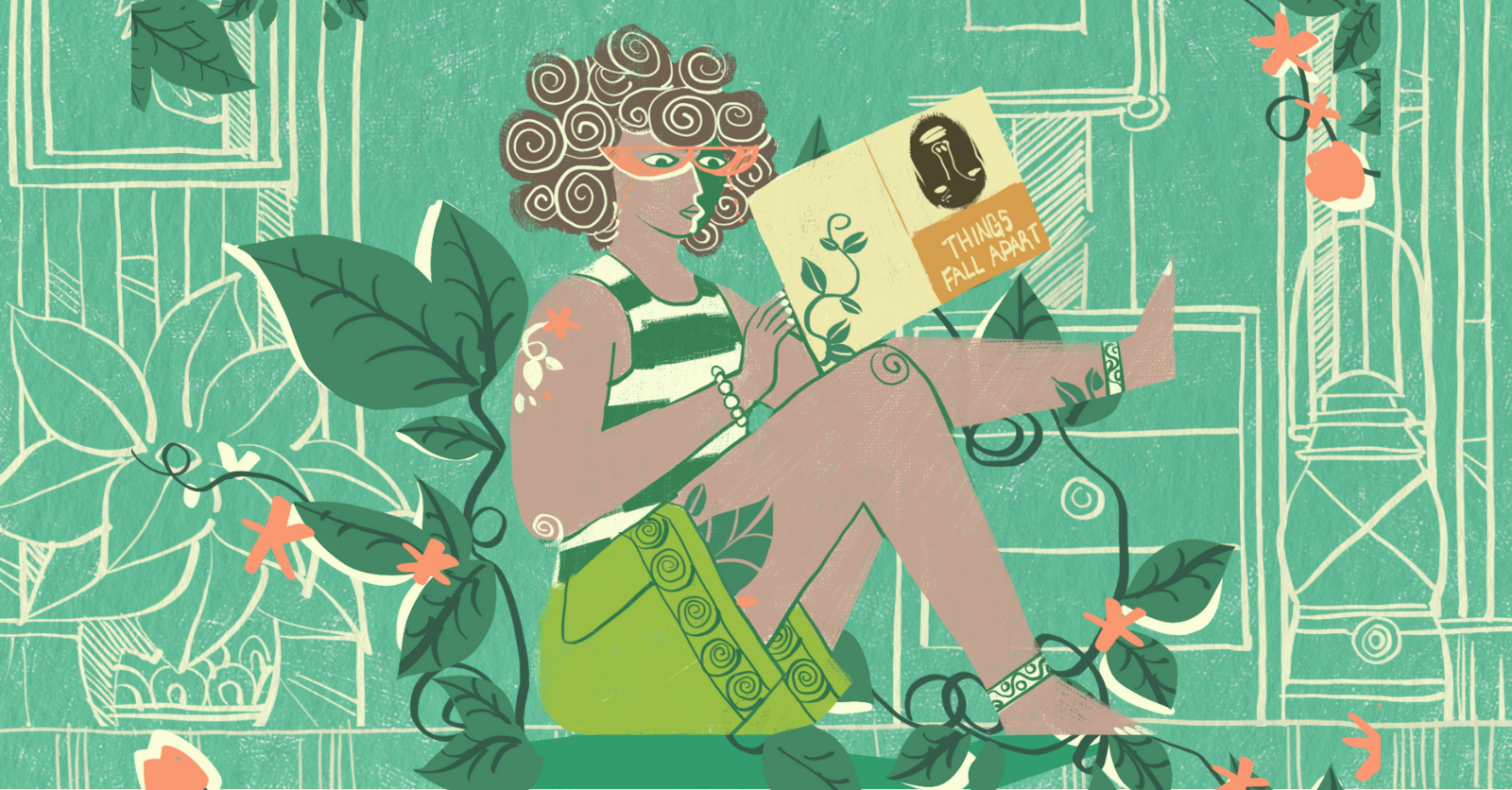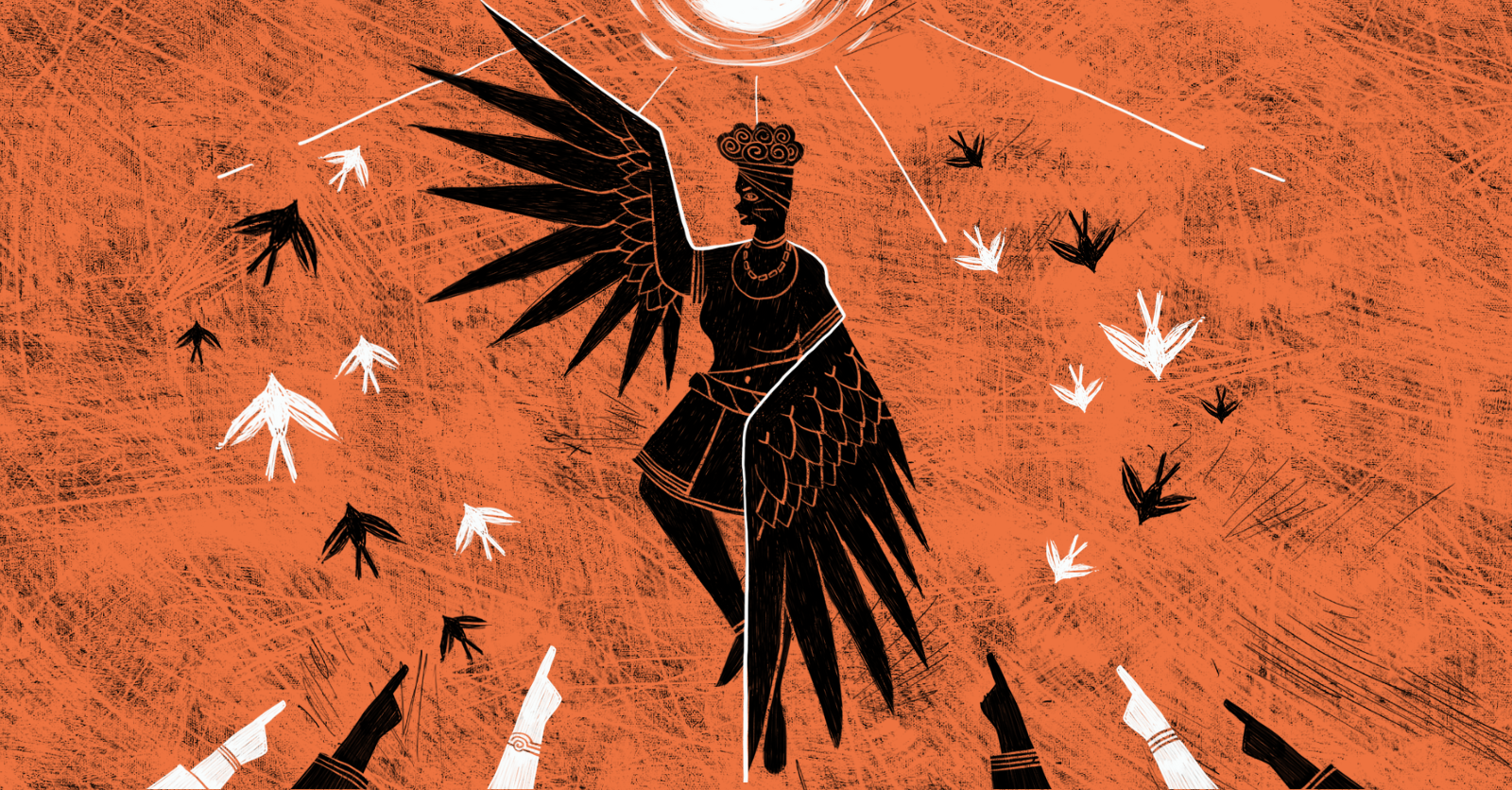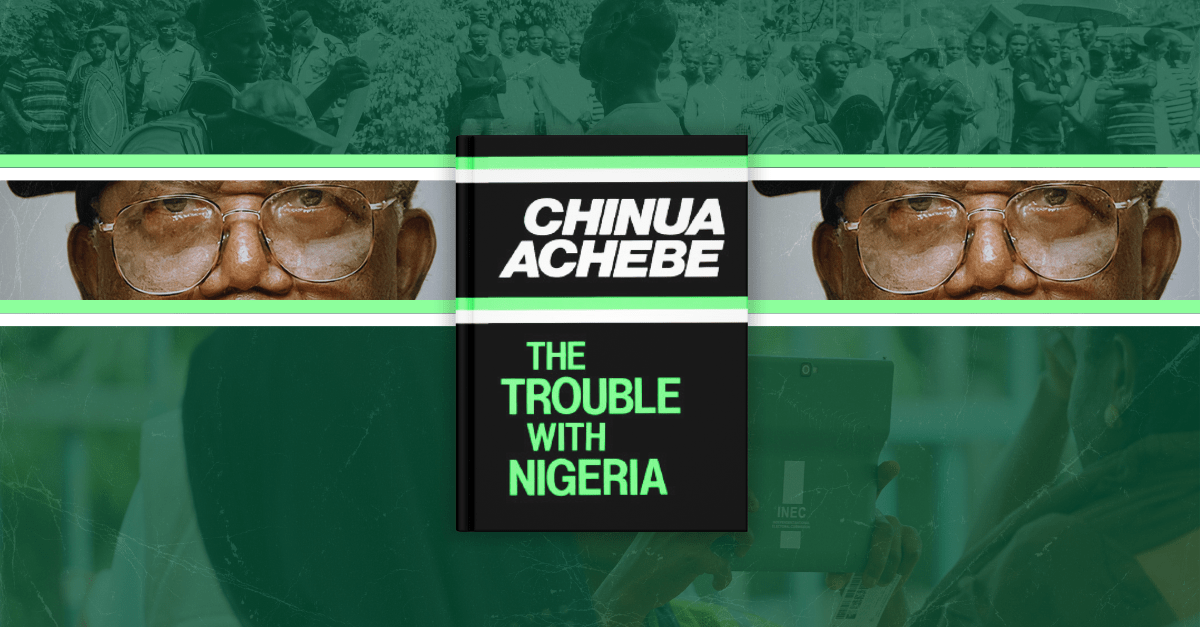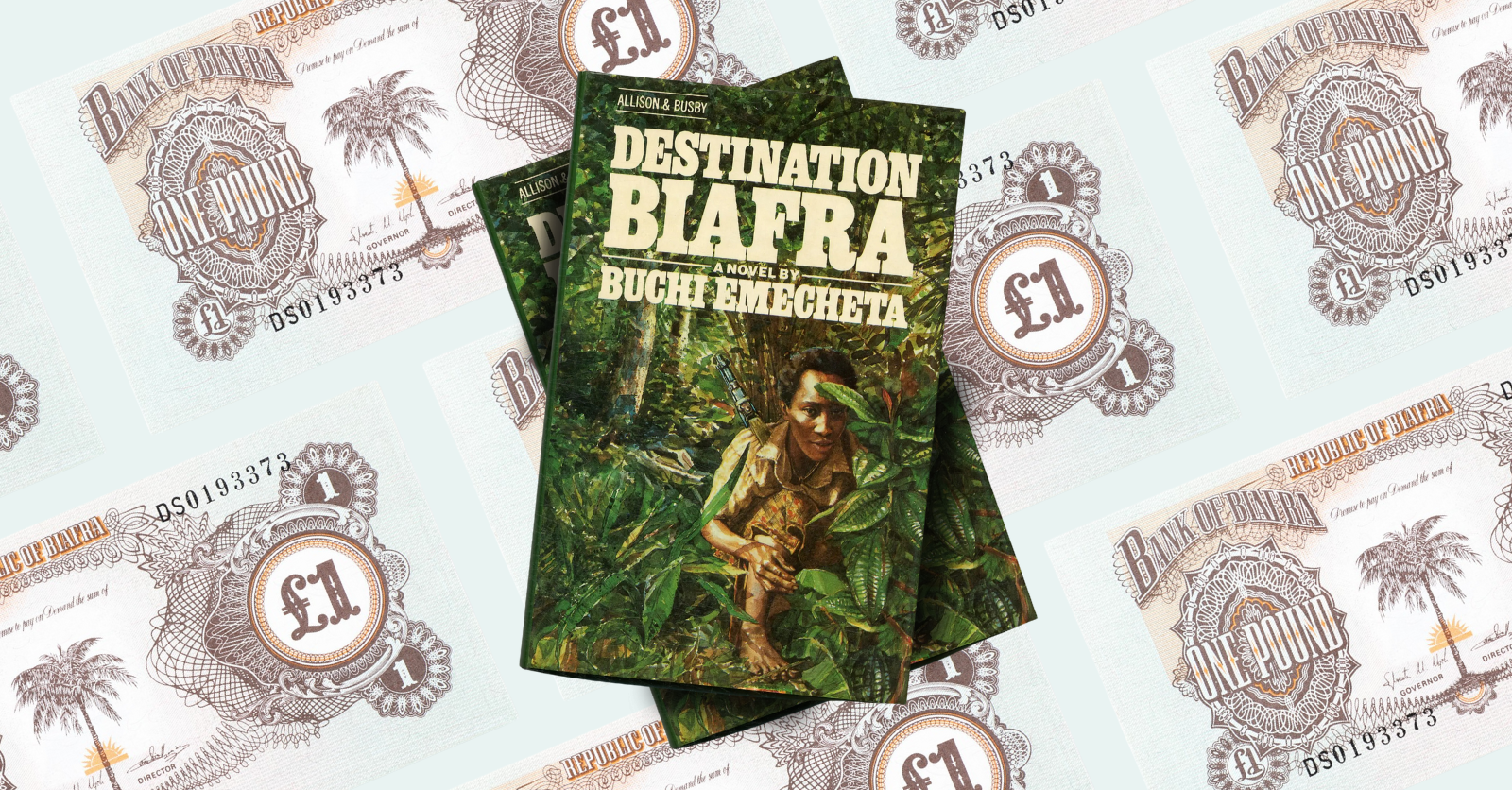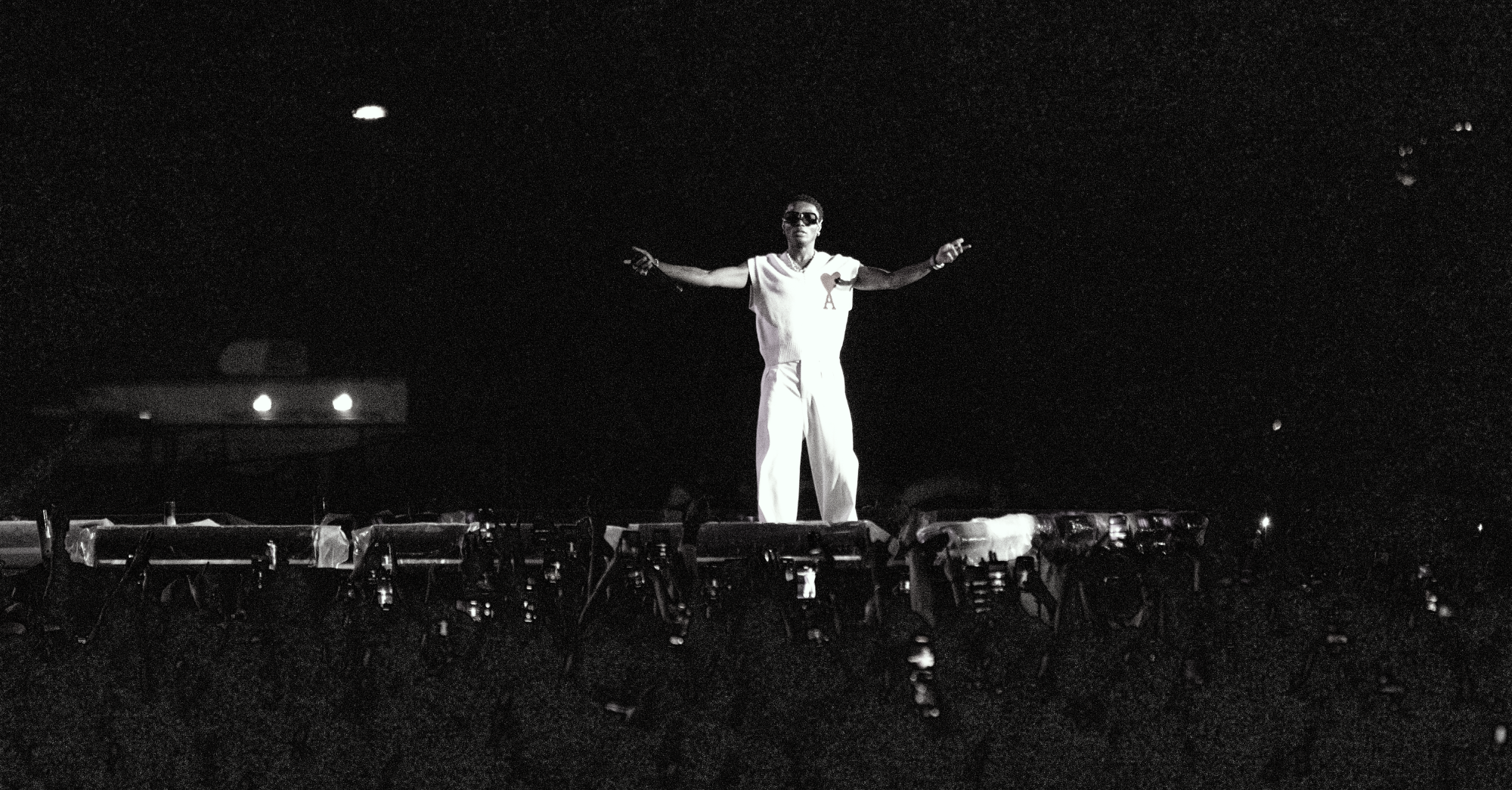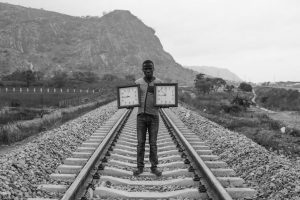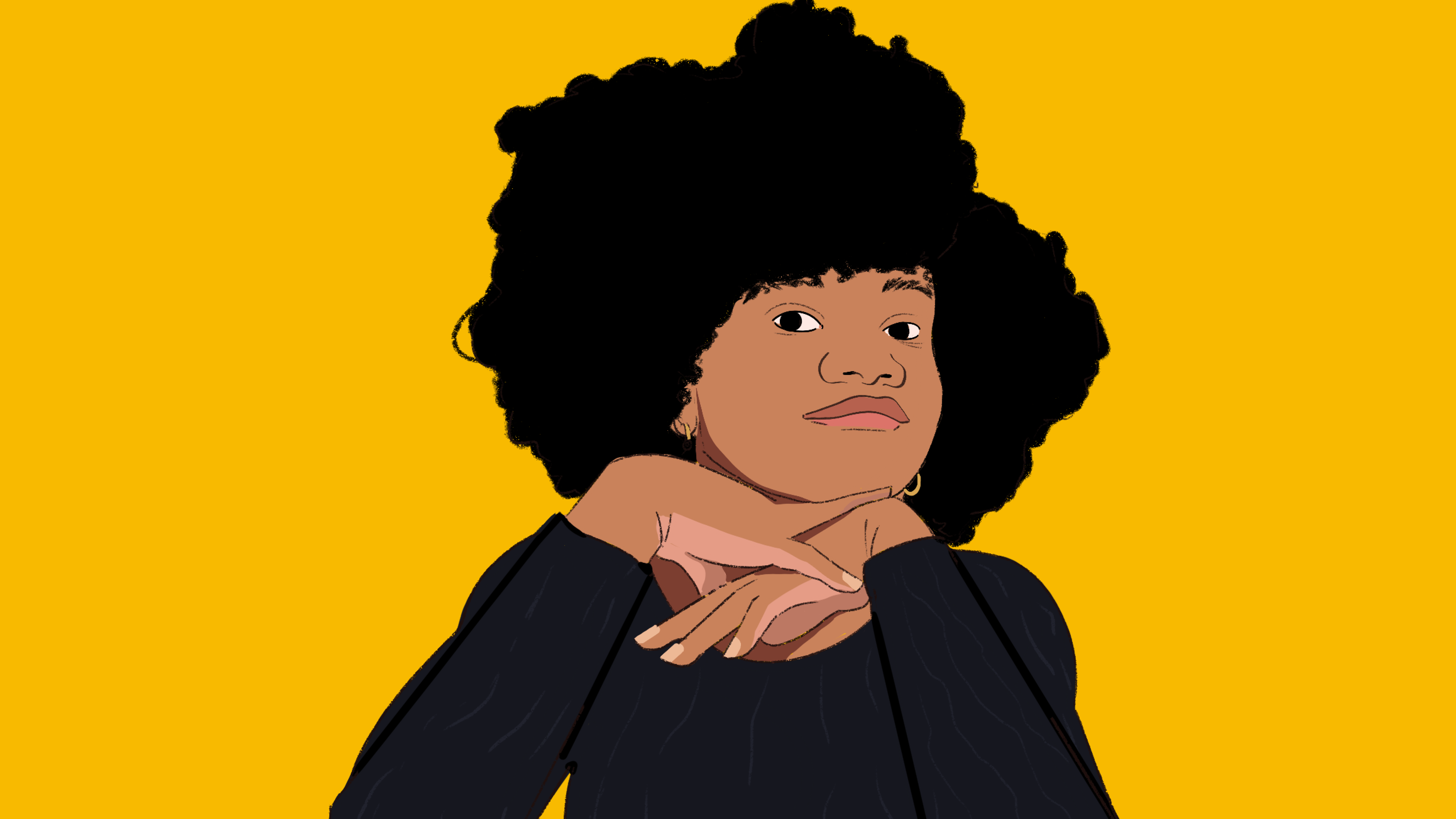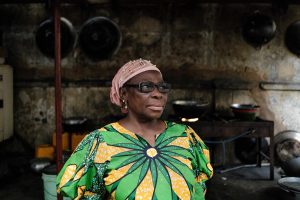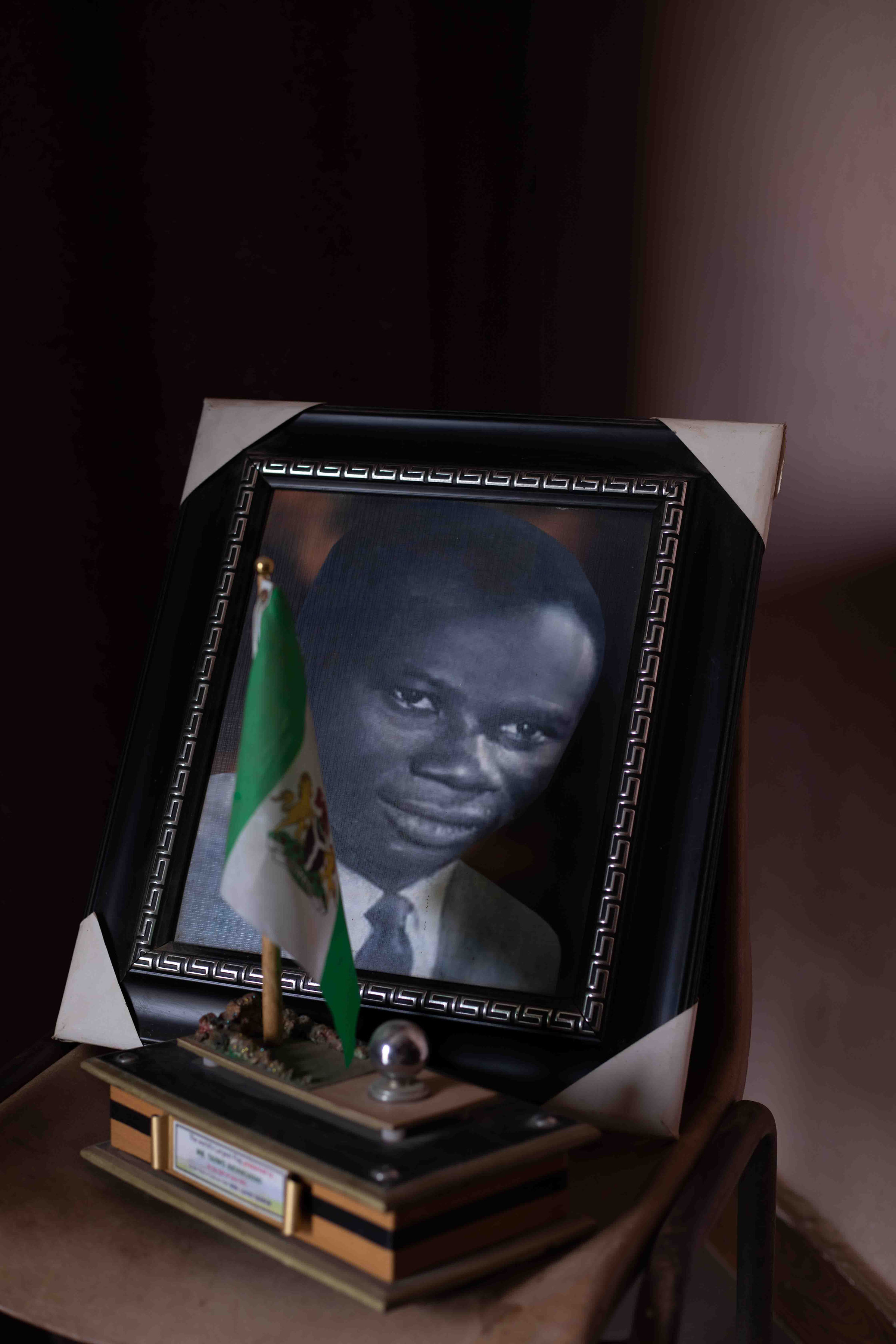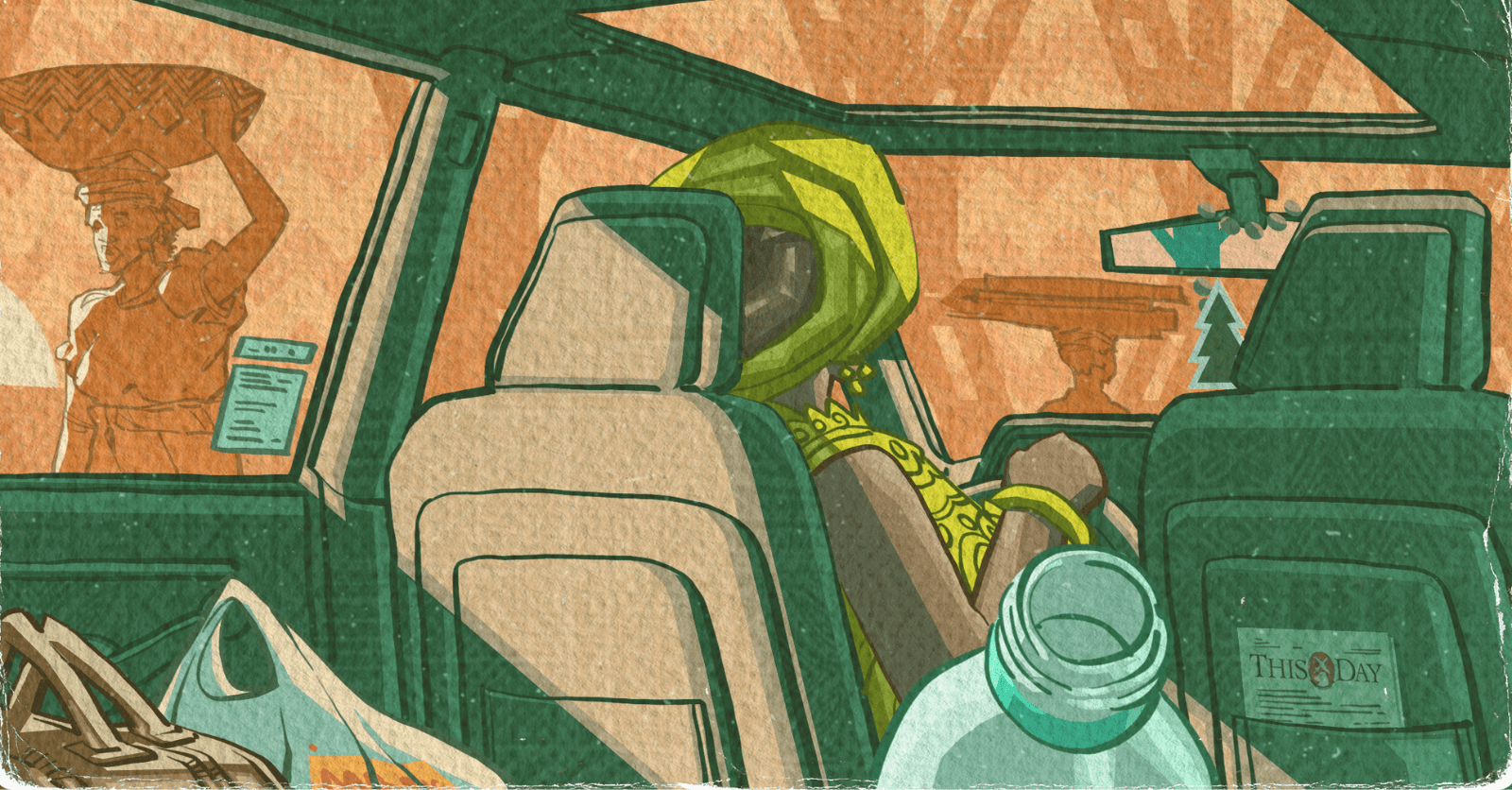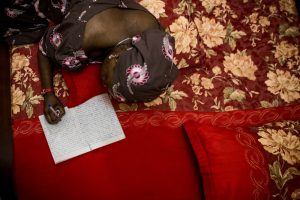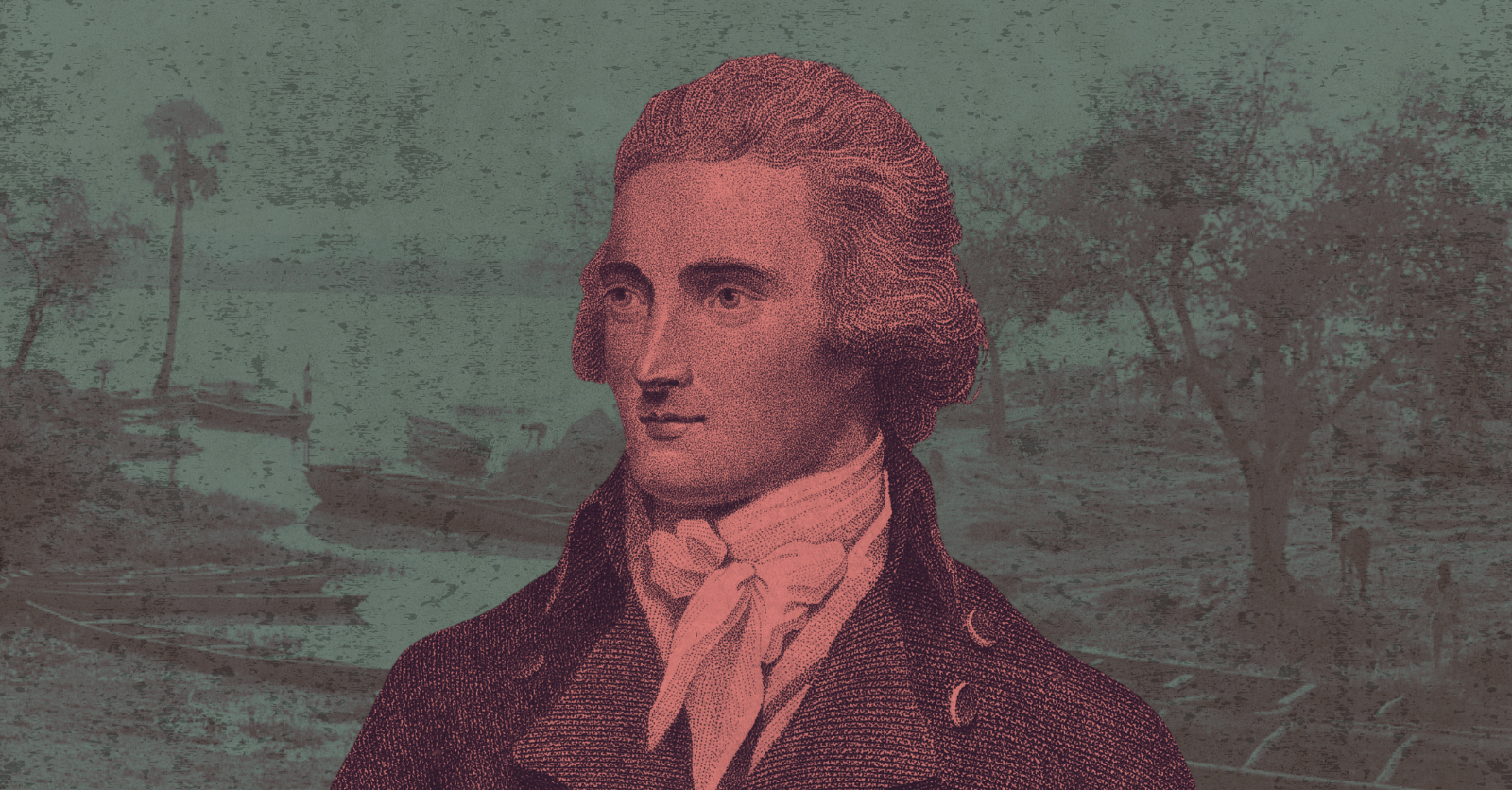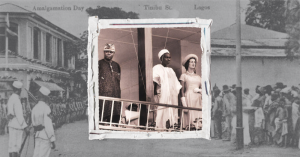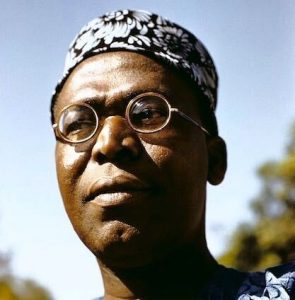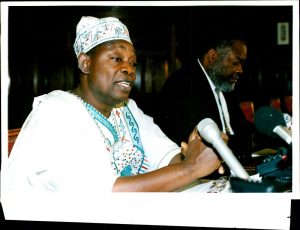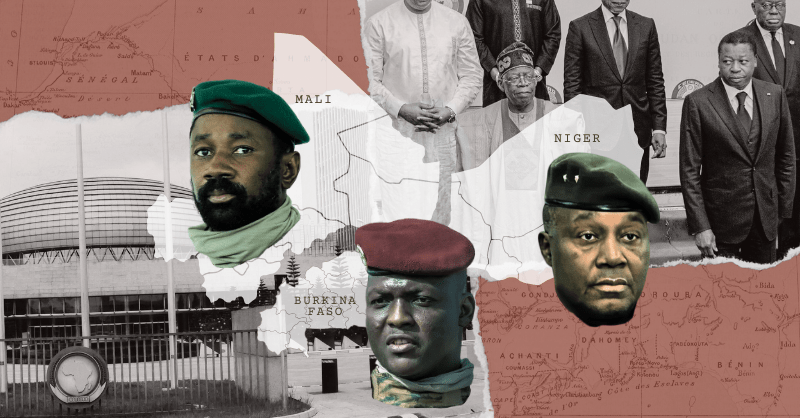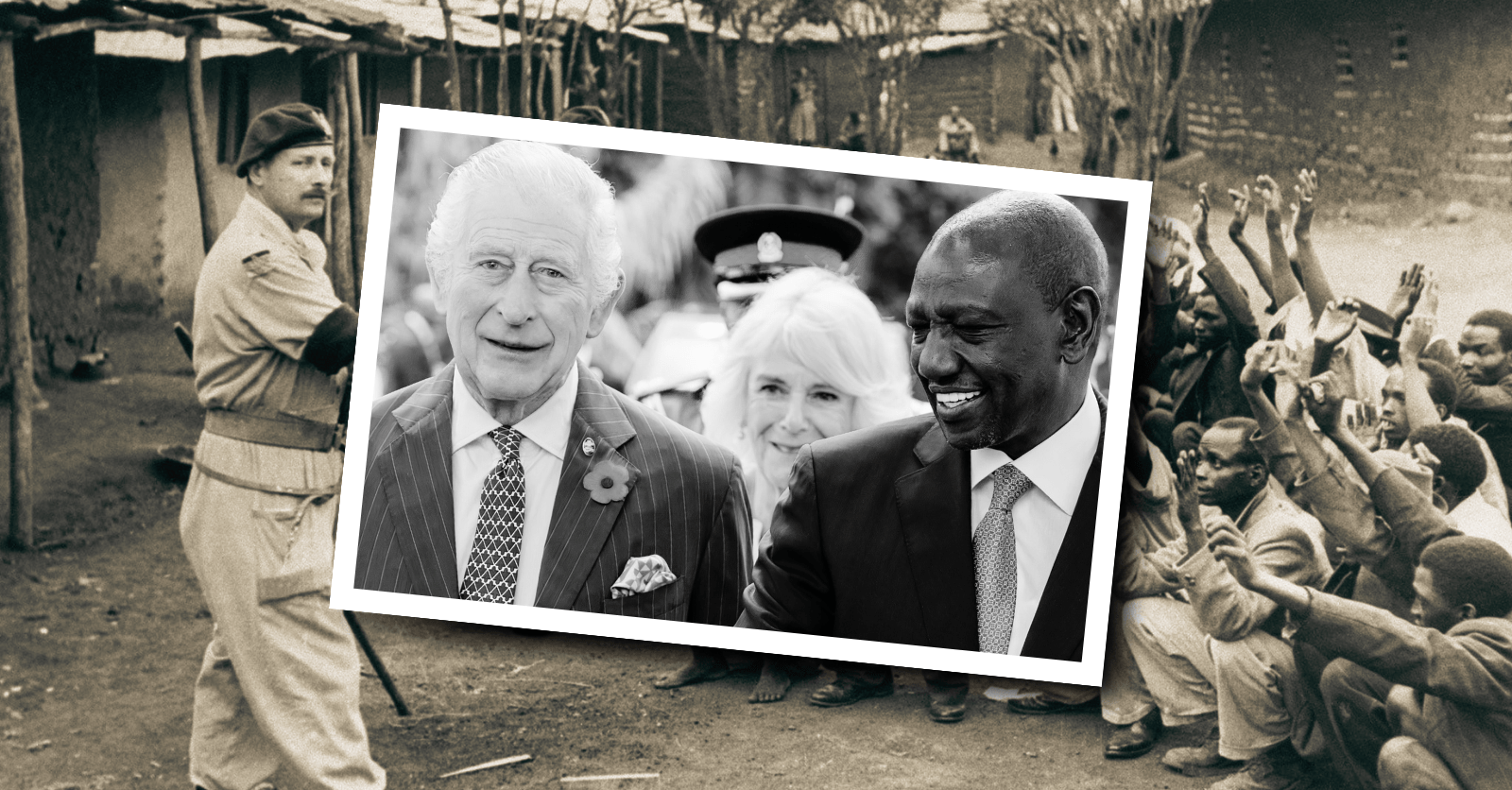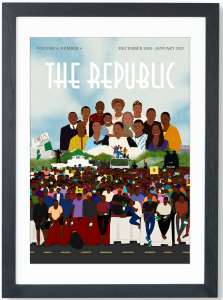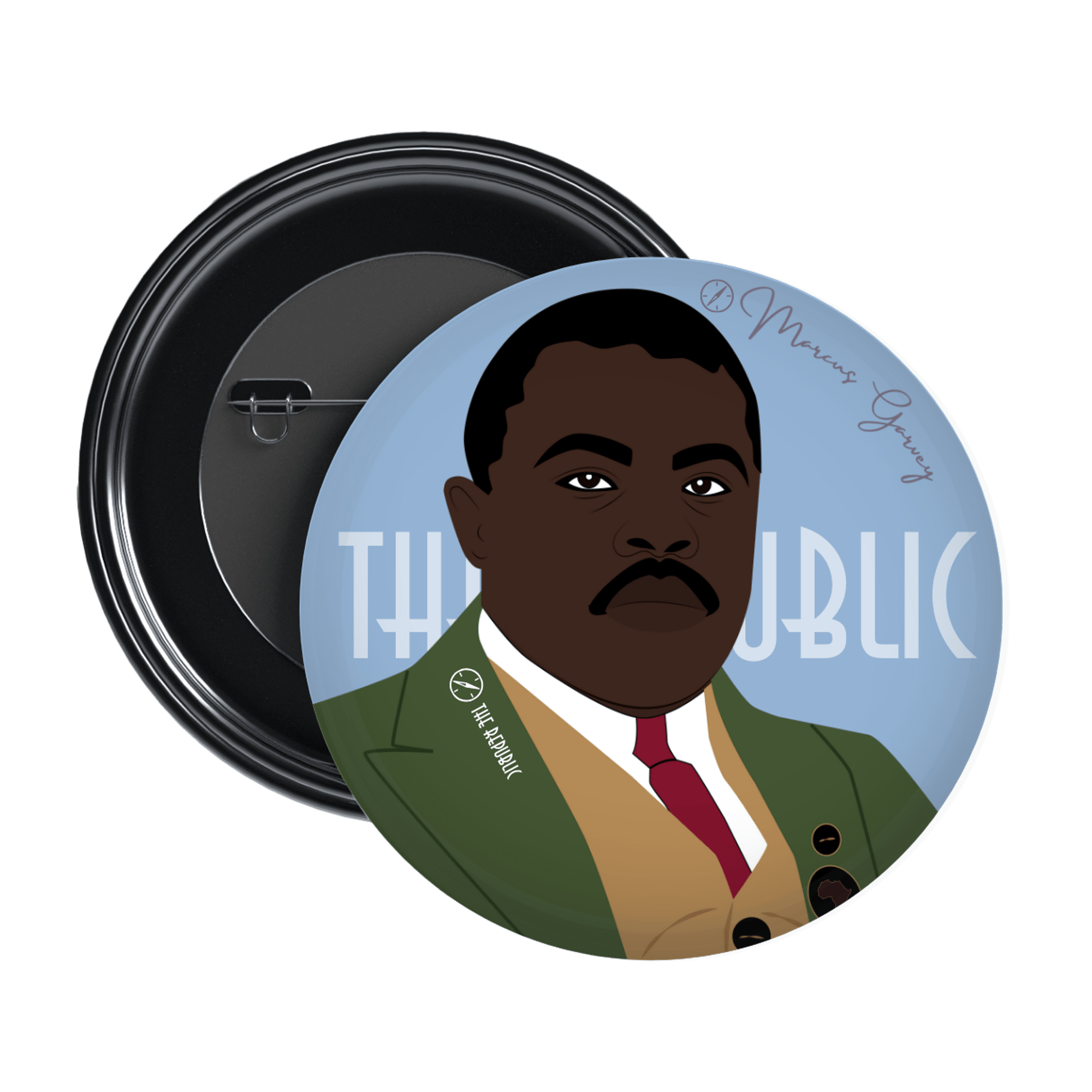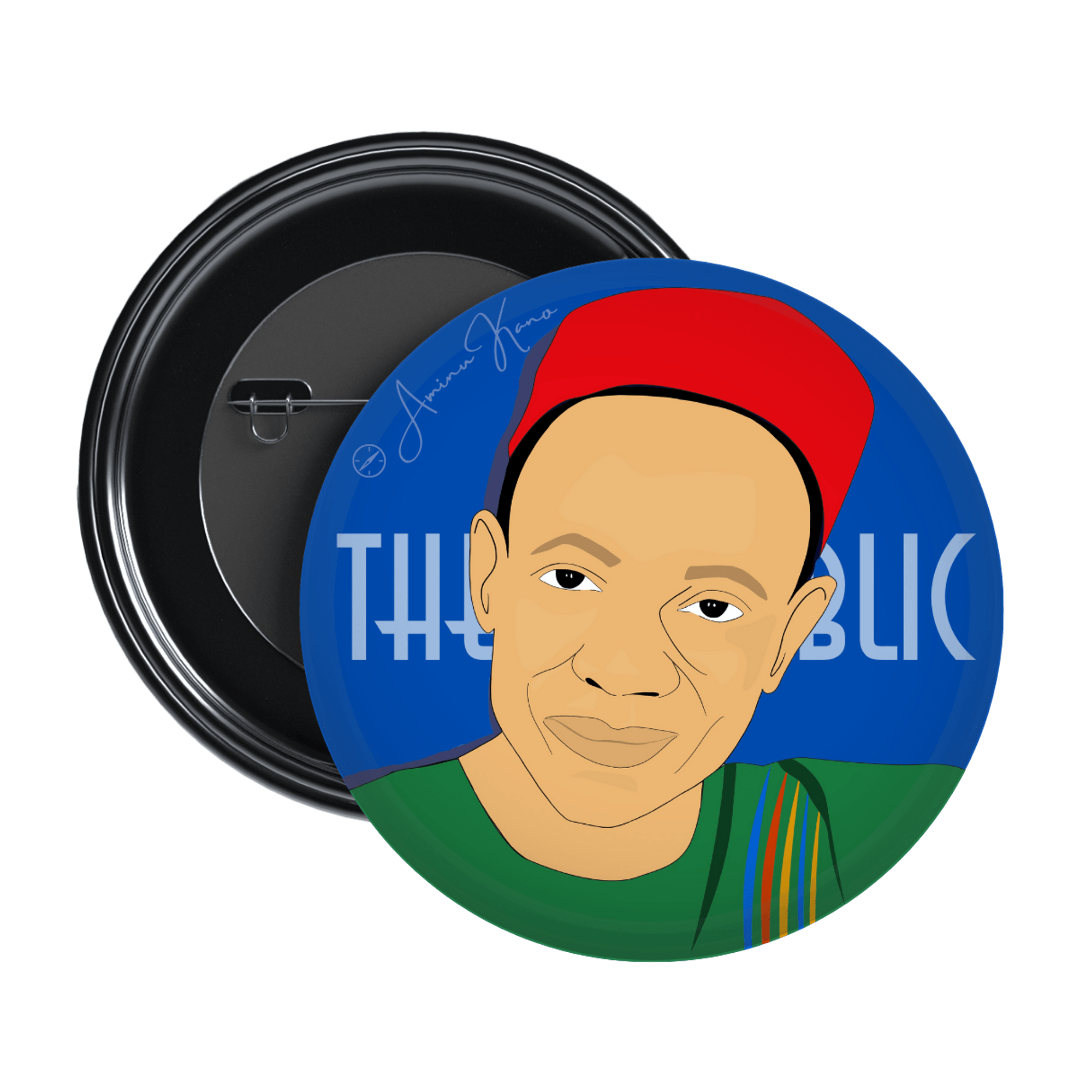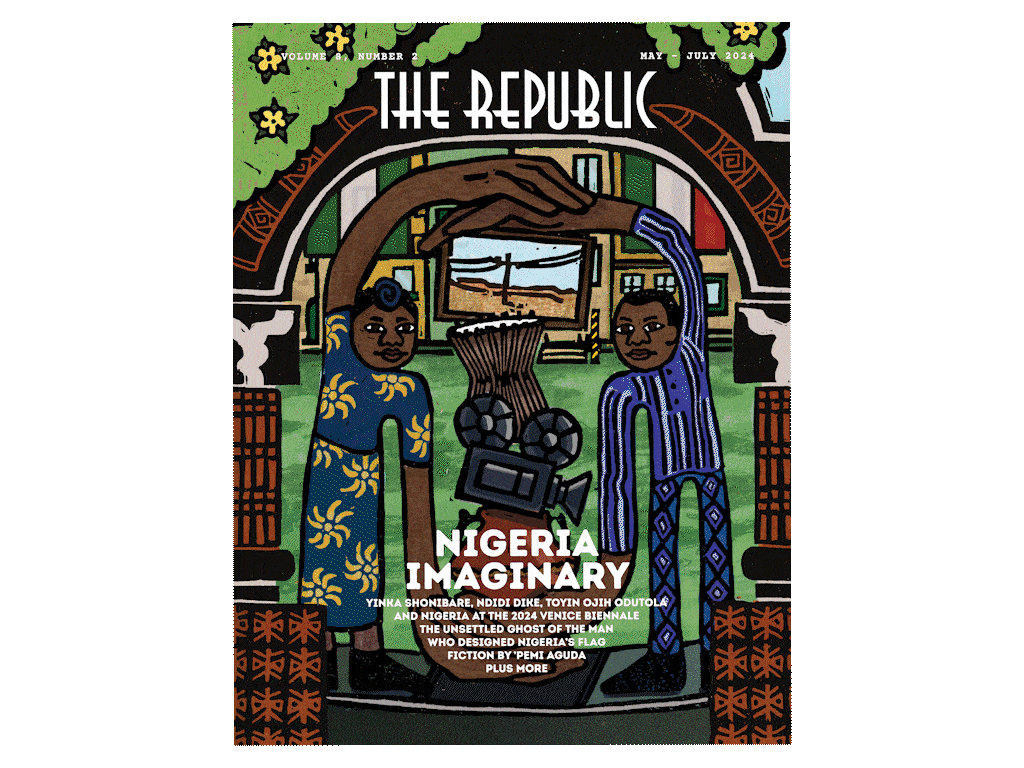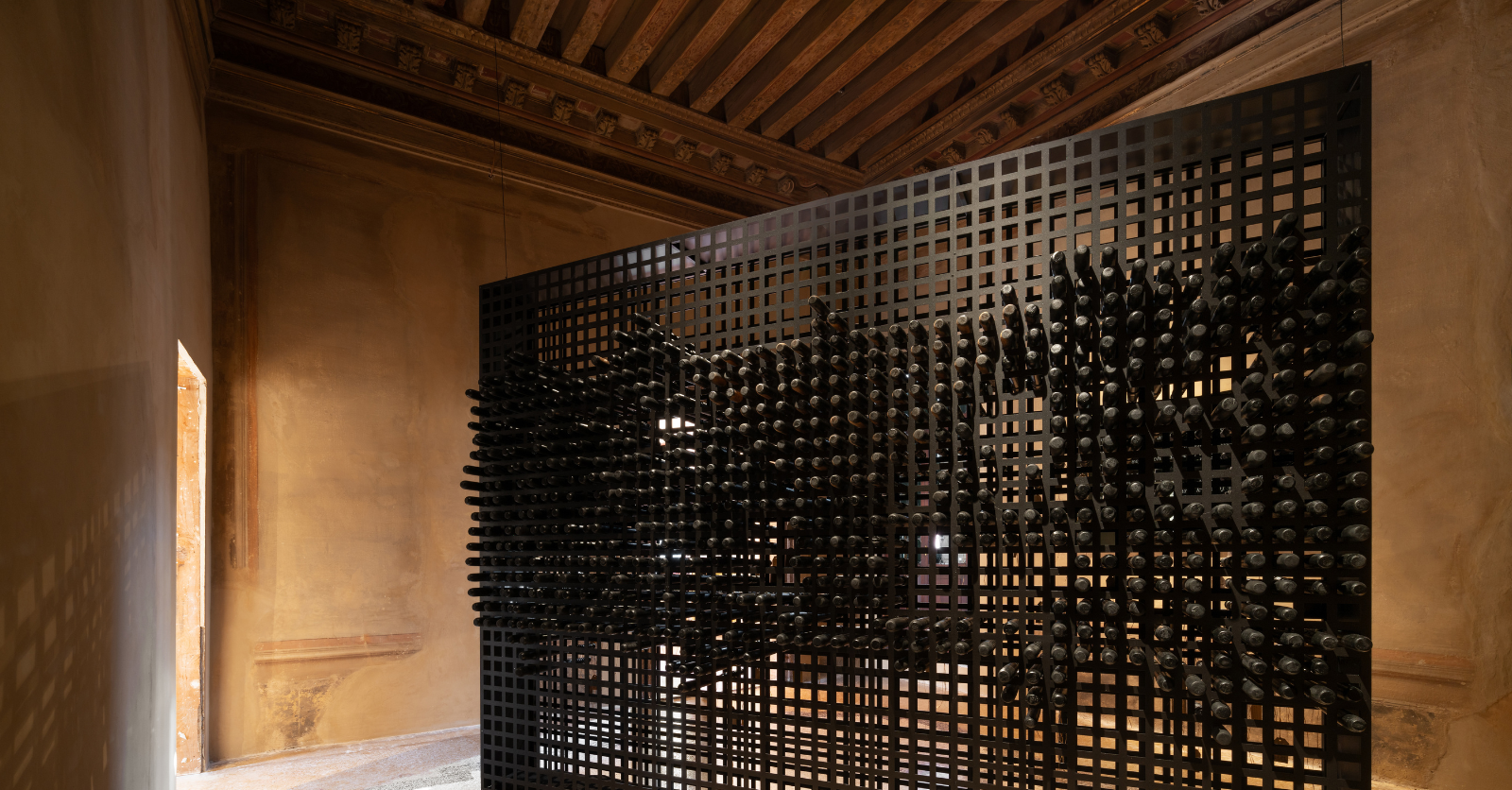
Ndidi Dike, Blackhood: A Living Archive, 2024. Installation view, Nigeria Imaginary at the Nigeria Pavilion at the 60th International Art Exhibition — La Biennale di Venezia. MARCO CAPPELLETI STUDIO / MUSEUM OF WEST AFRICAN ART (MOWAA).
EDITOR’S FOREWORD
Nigeria Imaginary

Ndidi Dike, Blackhood: A Living Archive, 2024. Installation view, Nigeria Imaginary at the Nigeria Pavilion at the 60th International Art Exhibition — La Biennale di Venezia. MARCO CAPPELLETI STUDIO / MUSEUM OF WEST AFRICAN ART (MOWAA).
EDITOR’S FOREWORD
Nigeria Imaginary
This issue will be The Republic’s 20th in print (officially) and to mark this milestone, we decided to produce two versions of this magazine: a regular version featuring new writing (as per usual) and an extended version that in addition to new writing, features essays from our archive, dating as far back as our debut year, 2017. That we can do this, boils down to the kind of writing our work champions: writing that reaches through time.
Months ahead of this issue, we had been discussing with the Museum of West African Art (MOWAA) about collaborating on producing several art-focused essays ahead of the 2024 Venice Biennale, where MOWAA organized the Nigeria Pavilion. Speaking to Aindrea Emelife, MOWAA’s curator of contemporary and modern art, and the curator of the Nigeria Pavilion, this collaboration was part of a larger MOWAA project, ‘to connect the exhibition with its contextual place of genesis.’ With that in mind, we set out to produce essays that would allow readers to critically engage with the Pavilion as well as its themes of Nigerian thought, identity and culture. We also jointly developed a design contest, giving emerging Nigerian artists the opportunity to transform our front cover and showcase their own vision of Nigeria. Sarah N. Kanu, an Abuja-born and Texas-based artist won the contest.
My interview with Emelife headlines this issue. ‘My personal considerations of what “Nigeria is today” is not the sole view that informed the curatorial vision,’ Emelife told me. ‘It was clear from the beginning that there should be a community consultation, to capture the many varying views and perspectives of Nigeria today. A project like this would suffer from individualism... The Nigeria Imaginary is dialogical. I ask questions, the artists ask questions, you should leave, hopefully, with even more questions.’
‘THE NIGERIA IMAGINARY IS DIALOGICAL’
Aindrea Emelife on the Meaning of the Nigeria Pavilion at the 2024 Venice Biennale.
And now for the essays.
In producing our three cover essays, we wanted to platform discussions not only of the Nigeria Pavilion but also of the significance of the exhibition for Nigerian art and Nigerians at large. Prioritizing deep, critical studies of individual artists over surface-level surveys, we commissioned essays on Toyin Ojih Odutola, Ndidi Dike and Yinka Shonibare CBE RA. These essays, while not necessarily artist profiles, use each focus artist as a window into the Pavilion as well as wider discourse on Nigerian and African art.
‘Within the context of the Biennale, Ojih Odutola’s probing of space, bodies in motion, and containments, extends,’ Kéchi Nne Nomu writes. ‘Place becomes, more than a means of homing the body, a way to reimagine and contain evolutionary history or myths of creation.’ In this regard, Nomu explains, ‘Ojih Odutola shares common ground with Fatimah Tuggar, also a part of the showcase, whose Tubali architectural façades and calabash animatronic sculptures, reanimate the lived-in space. Both artists ask: how much telling can a striation, line mark or wooden fragment do?’
Toyin Ojih Odutola’s Theories of Place
The Nigeria Pavilion at the 2024 Venice Biennale brings together artists who are diverse in their styles, influences, affiliations with place, and interpretations of nationhood and history. Among them is Toyin Ojih Odutola, whose artistic instincts already bypass easy conceptions of place, belonging and history.
‘Dike’s art, and that of her co-exhibitors, are instrumental to the extensive vision of a liberated future such as Nigeria Imaginary projects,’ Chimezie Chika notes. ‘Each one of their works bears demonstrable similitude to the contemporary concerns of Nigeria: from the decadence of history to a utopia of the future; they are at times intriguing and emotional, though ultimately inspiring.’
Ndidi Dike’s Thesis on the Nigerian Condition
‘Nigeria Imaginary’, the theme of the Nigeria Pavilion at the 2024 Venice Biennale, is a daring call to not just imagine Nigeria as a restored entity but to also dream its future into reality. Through Ndidi Dike, viewers experience the distinctly Nigerian desire to connect what Nigeria once was, what it is now and what it might become.
‘Through Yinka Shonibare CBE RA, the Nigeria Pavilion at the 2024 Venice Biennale presents a Nigeria that is more about routes than roots,’ Mobólúwajídìde Joseph explains. ‘A Nigeria that diagnoses its struggles with intricately imagined jokes while holding up a mirror to structural violence and broken promises. And a Nigeria that allows its children to return again and again in an ever-expanding array of visions and alternative futures.’
Yinka Shonibare and the Case for Nigeria at the Venice Biennale
Through Yinka Shonibare CBE RA, the Nigeria Pavilion at the 2024 Venice Biennale presents a Nigeria that is more about routes than roots. A Nigeria that diagnoses its struggles with intricately imagined jokes while holding up a mirror to structural violence and broken promises. And a Nigeria that allows its children to return again and again in an ever-expanding array of visions and alternative futures.
In line with our new format, this issue features authors writing on topics ranging from arts & culture to politics & security. Our Arts section includes ‘Birdwoman’ a short story by ’Pemi Aguda from her newly released collection, Ghostroots. This section also includes an essay by Ancci on recent debates (and a possible breakthrough!) in Nigerian literature; along with an extended essay on M.I, Jessie Jagz and the creative landscape of Jos by Emmanuel Esomnofu.
The Songs of Jos
For a long time, the city of Jos has grappled with violence fuelled by religious and ethnic differences. But today, Jos is home to musicians and creative communities who are...
Reading the Great Nigerian Literary Debate
For several years now, a new generation of Nigerian writers and literary scholars has been debating the meaning of Nigerian literature. Last year, we finally came close to a breakthrough.
Birdwoman
‘Why are they screaming? Felicity raises an arm to clear the smoke in front of her face. But her arm doesn’t rise. Instead, feathers flap.’ An excerpt from ’Pemi Aguda’s...
In our extended edition, the Arts section also includes: Ijedike Jeboma on the lasting significance of Buchi Emecheta’s Destination Biafra; Ernest Nweke on the resilient boldness of Chinua Achebe’s The Trouble With Nigeria; Zainab Kuku on the rise of Afrobeats; Boluwatife Akinro on the contemporary photographers disrupting the historical representation of Africa.
The Nigeria Manifesto Book Review: The Trouble with Nigeria by Chinua Achebe
Forty years since its publication, Ernest Nweke believes that if there was ever a ‘right’ man to write any particular book, then Achebe is the man, and The Trouble with...
Writing from the Collective Memories of Others Revisiting Buchi Emecheta’s Destination Biafra
Since the publication of Destination Biafra by Buchi Emecheta in 1982, many Nigerian writers have made contributions to Biafran War literature. Thirty years on, Emecheta’s novel continues to stand out...
Collaborative and Experimental The Evolution of Afrobeats and Its Current Landscape
Afrobeats has evolved commercially, sonically and collaboratively over the years. We need to strike a balance between commending Afrobeats for its global success and protecting the genre, so its authenticity...
Creating Africa Africa in the Global Contest of Looking and Representation
In the global contest of looking, Africa has not been granted equal status. We stand apart as the Other, stared at, looked down upon, and most times, lacking the vantage point to return the gaze.
In Business, Oyindamola Depo-Oyedokun reports on the rise and evolution of Mavin Records, which announced investment interest from Universal Music Group earlier this year. ‘The deal, which is expected to be closed by the start of the third quarter of the year pending regulatory approval,’ Depo-Oyedokun writes, ‘will see UMG own a multi-million-dollar majority stake in Mavin while leaving CEO, Don Jazzy and chief operating officer, Tega Oghenejobo, at the helm of management.’
‘I Only Want to Write Things I Can Be Proud Of’ Oyindamola Depo-Oyedokun’s First Draft
Author of ‘Don Jazzy Global Machine’, Oyindamola Depo-Oyedokun believes brilliant storytelling lies in the writer’s ability to connect readers with the narrative.
In our extended edition, the Business section also includes Ayoola Oladipupo’s profile of Alhaja Fausat Adebayo whose 50-year-old Iya Eba restaurant, he writes, ‘has contributed to the history of Lagos, one plate at a time.’
Iya Eba’s Legacy Lagos No Send Anybody
The story of Lagos, or at least a major section of it, would be incomplete without a chapter on those who provide the fuel needed to keep the people of this megacity constantly moving: street food. Consider Iya Eba restaurant, which, for more than 50 years, has contributed to the history of Lagos one plate at a time.
In Culture, Republic senior associate editor, Yusuf Omotayo, travels to Ibadan, where the Akinkunmi family are still waiting for the state funeral they were promised for Taiwo Akinkunmi. Akinkunmi was the man who designed the Nigerian flag. According to Omotayo, it took the Nigerian government 51 years to formally honour him. ‘Now, months after his death, his body remains in a morgue as his family awaits a state burial.’
Who Will Bury Mr. Taiwo?
It took the Nigerian government 51 years to formally honour Taiwo Akinkunmi, the man who designed the Nigerian flag. Now, months after his death, his body remains in a morgue as his family awaits a state burial.
In our extended edition, the Culture section also includes: Osivue Itseumah and Khalid Oshogwemoh on the potential of basketball in Nigeria; Sada Malumfashi on the history of Hausa feminist writings; Elizabeth Iwunwa on the pivotal role of religion in the Nigerian public life.
A Peculiar People Christianity and Nigerian Public Life
Nothing was untouched by the practice of religion in Nigeria. You could not pour sand in your ears to drown out its demands. We carried on with the assumption that...
Zata Iya A History of Hausa Feminist Writings
The feminist champions of Hausa literature have their pens ready, full of fire, energy and imagination, emitting hidden truths through their words, and steadily reinventing the narratives of women in...
The Future of Nigerian Basketball A Policy Roadmap to Retain and Develop Basketball Talent in Nigeria
For decades, Nigeria has served as a talent pool for international basketball leagues but has failed to capitalize on its youth potential. The advent of a new administration provides an...
Our extended edition also features a History section that includes Ezenwa Olumba’s problematization of the narrative that Mungo Park ‘discovered’ the Niger River. Additionally, Republic associate editor, Chukwudi Ukonne, writes on the complicated legacy of post-independence political leader, Chief Obafemi Awolowo; and Ogechukwu Okonkwo examines the making of modern Nigeria from the era of British imperialism till date.
The Niger River and the Dearth of History Deconstructing the Myths of Mungo Park
Challenging the narrative that Mungo Park ‘discovered’ the Niger River brings to the fore the complex legacy of European explorations in Africa. It underscores the urgent need for a shift...
The Making of Modern Nigeria British Imperialism and the Political Evolution of Nigeria
Colonization not only altered geographical boundaries to invent Nigeria; it also engineered social and political institutions that have continued to shape Nigeria to this day.
An Irony of History The Complicated Legacy of Chief Obafemi Awolowo
Peer, predecessor or successor, Awolowo’s unequivocal articulation of a clear and consistent political ideology places him above anyone else in Nigeria’s political history. Read more.
In Interviews, travel writer and author of Black Ghosts: A Journey into the Lives of Africans in China, Noo Saro-Wiwa, reveals the book that made her explore travel writing. When Saro-Wiwa read Martin Fletcher’s Almost Heaven, a book about the author’s journey around the backwoods of America, ‘it was the first time I encountered reportage that was literary and not connected to headline news. It opened my mind to the possibility of non-fiction writing.’
‘There Is a Battle Between Relaying Stories Thematically Versus Chronologically’ Noo Saro-Wiwa’s First Draft
Travel writer and author of Black Ghosts: A Journey into the Lives of Africans in China, Noo Saro-Wiwa, travelled to Guangzhou after reading about the African community in China.
Our extended edition ends with a Politics section that includes: Chioma Okafor, Dr Olajumoke Ayandele and Dr Olubukunola Oyedele on the politics of feminist protests in Nigeria; Baba Aye on the legacy of the June 12 1993 election; Chris Ngwodo on what the government must do to secure a progressive Nigeria.
The Great Unravelling The Disintegration of the Nigerian State
ver since the end of Nigeria’s three-year civil war in 1970—a costly conflict that consumed an estimated three million lives—the nightmare scenario for the national defence and security establishment has...
Women Who Lead Feminist Protests and Politics in Nigeria
For protests such as #EndSARS where women play prominent leadership roles, gender stereotypes that assign leadership roles to men encourage dampen these protests at a much faster rate than protests...
The Shadow of June 12 June 12, the Left and Nigeria’s Democratic Revolution
‘June 12’ was a defining moment in Nigeria’s history and yet it has not received as much critical attention as it deserves. Read more.
Since our last issue, The Republic has received funding from the Open Society Foundations (OSF), which will go towards expanding our Black Atlantic column. OSF funding also supported the production of this issue. We have also won the Google News Initiative’s Innovation Challenge. Support from MOWAA contributed towards the production of this issue. Additionally, Google’s award will go towards helping us to build ATLAS, a photo discovery and licensing platform.
Geopolitical Projections in West Africa and the Wider Continent
A new element in geopolitics across Africa is the growth of political consciousness and the willingness to organize against unfavourable status quos. Recent events in Mali, Niger and Burkina Faso...
King Charles’ Non-Apology to Kenyans
Amidst global demands for reparations, King Charles offers Kenyans a (non)apology. But what substance can an apology from Britain hold, when its imperial and colonial crimes continue to shape and...
As usual, we encourage our readers to engage with our essays and articles and to provide insightful comments. Readers may send their views directly to the Editor by addressing emails (of no more than 700 words) to wale@republic.com.ng, with the subject, ‘Comment on Xyz Essay’, or ‘Letter to the Editor’ as applies. Comments and letters will be archived and, depending on the quality of the arguments presented, we may reach out to assist in developing your letters and comments further for publishing in the magazine.
At The Republic, we will always prioritize the meaningful exchange of ideas. We commit to pressing forward: on the most critical of social, political and economic issues; by innovating through knowledge gaps; and by providing guidance through thickets of opinion, ignorance and misinformation—three key features of our time—in search of glades of insight⎈




